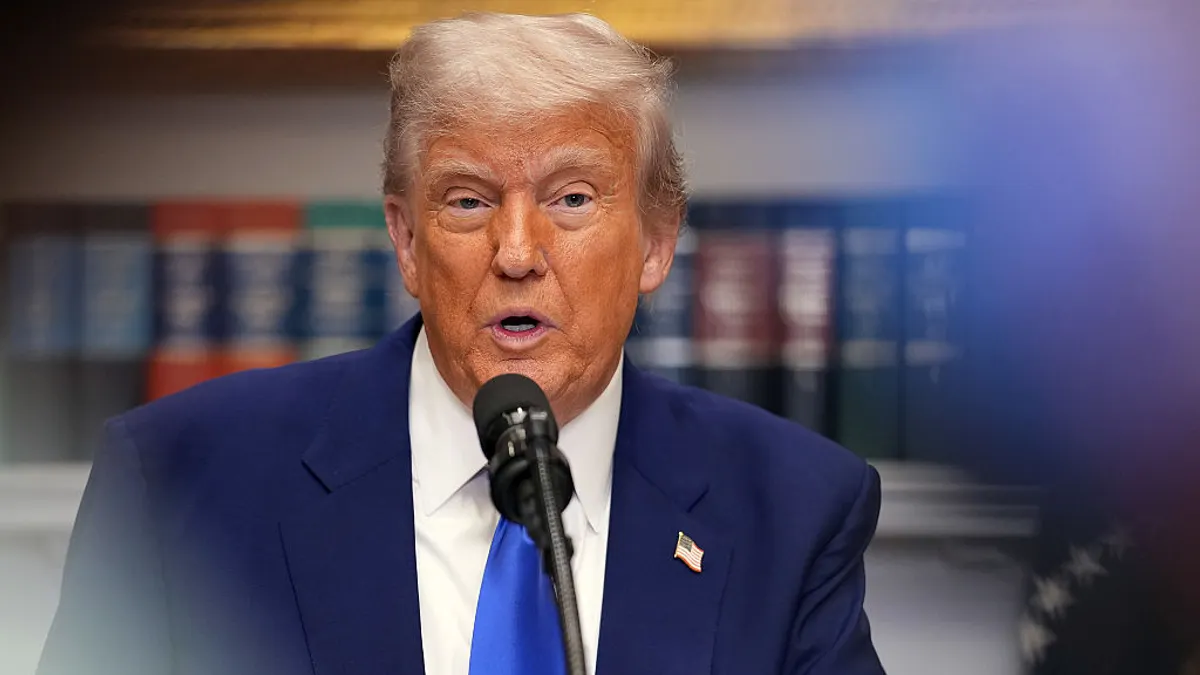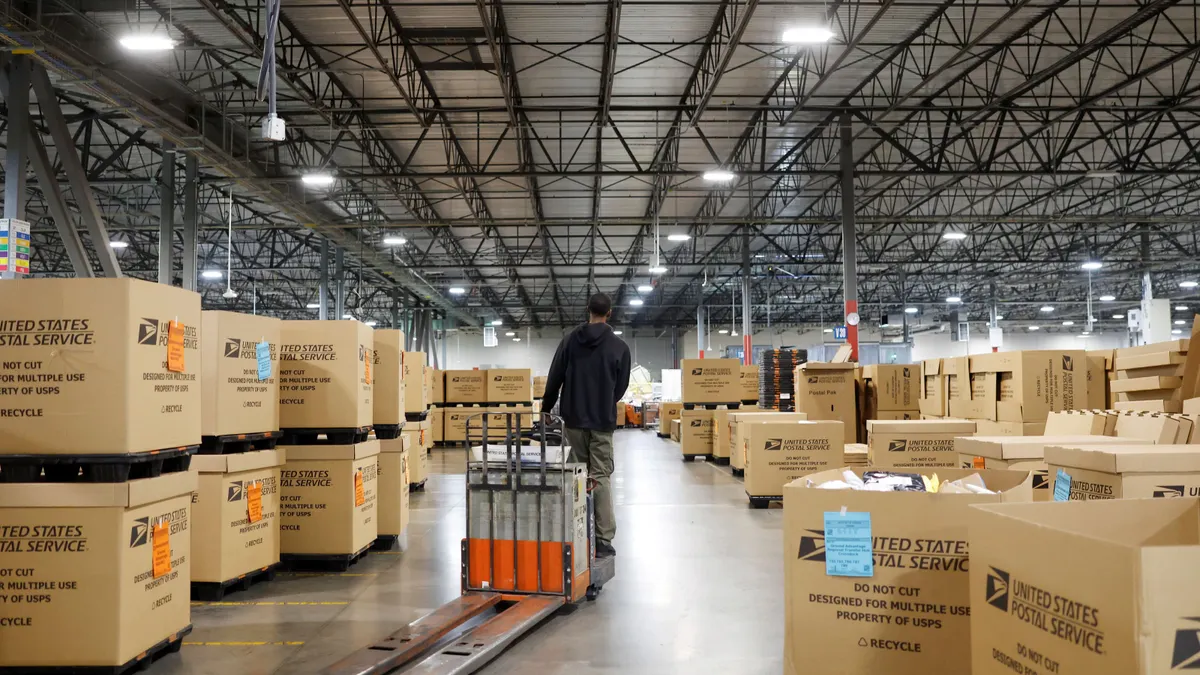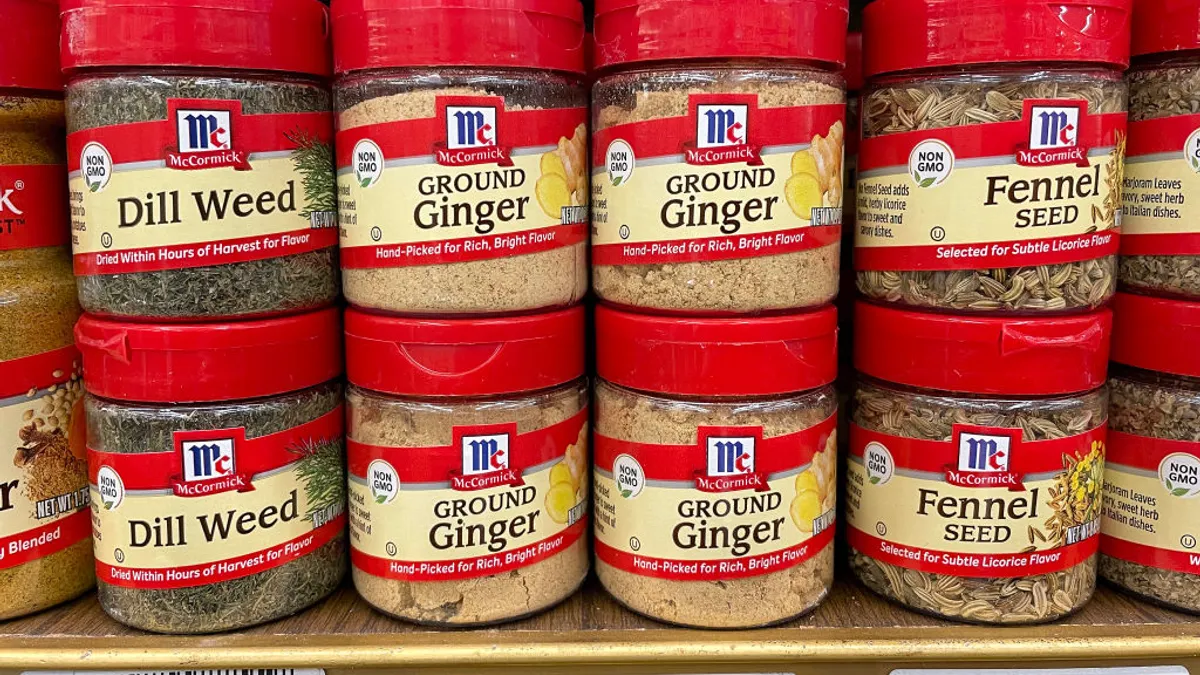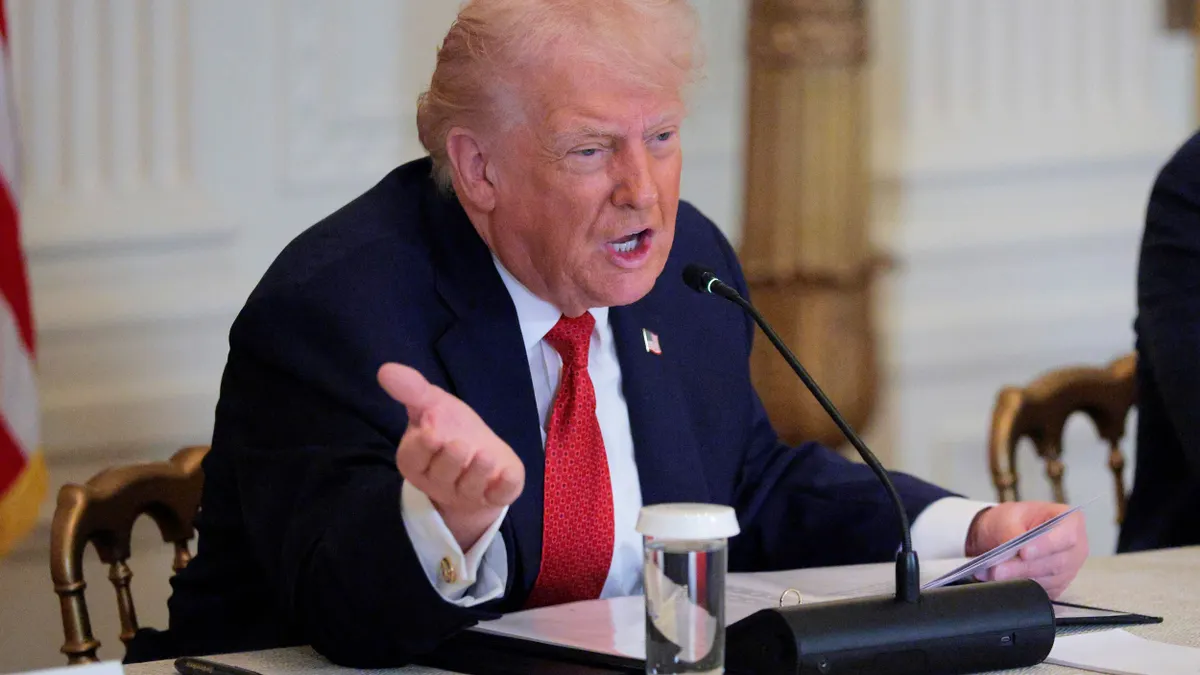The Trump administration is resurrecting a controversial policy that aims to tamp down some pharmaceutical costs in the U.S. by linking them to prices paid abroad, delivering another jolt to an industry it has already targeted for tariffs.
In an executive order announced May 12, President Donald Trump directed the Department of Health and Human Services and agencies governing international trade to pursue this approach, known as “most favored nation” for its resemblance to certain types of trade deals. The policy, which Trump unsuccessfully tried to implement in his first term, would link prices paid across the healthcare system to those in a group of other high-income countries, mostly in Europe.
In a May 11 social media post announcing the forthcoming order, Trump said it would reduce prescription drug prices “almost immediately, by 30% to 80%.”
“Starting today, the United States will no longer subsidize the health care of foreign countries,” Trump said in an announcement Monday.
The policy will likely be challenged in court by drugmakers, who will argue the only legal way to negotiate drug prices is through congressional action governing Medicare and Medicaid, which already exists through such laws as the Inflation Reducation Act.
Sen. Ron Wyden, D-Ore., senior Democrat on the Senate Finance Committee, criticized the proposal as a likely ineffectual measure. “If Trump was serious about lowering drug prices, he would work with Congress to strengthen Medicare drug price negotiations, not just sign a piece of paper,” Wyden said in a statement.
The Pharmaceutical Research and Manufacturers of America, an industry trade group, called the proposal a “bad deal for American patients and workers.”
“It would mean less treatments and cures and would jeopardize the hundreds of billions our member companies are planning to invest in America – threatening jobs, hurting our economy and making us more reliant on China for innovative medicines,” said Stephen Ubl, the association’s CEO, in a statement.
Reports had indicated the Trump administration tried to negotiate the policy’s inclusion in budget legislation being drafted in Congress, but later abandoned that effort. As a result, the policy is being implemented via an executive order that has more limited legal authority.
The pharmaceutical industry has staunchly opposed the policy, which they warn will hamper their ability to develop new therapies. Analysts predict it could weigh substantially on drugmaker revenue, but the exact impact is unclear and varies across companies. Industry lobbyists have reportedly told Congress the initiative could cost drugmakers as much as $1 trillion over a decade.
On earnings calls in recent weeks, pharma executives have made a more nuanced argument as they attempt to influence the administration’s actions on tax and trade policy. “We don't want to lose the leadership we have in this important field, and that's what we're trying to advocate for as we work with the administration,” Merck & Co. CEO Rob Davis told investors in late April.
In a press briefing on Monday, White House officials revealed key details in the order. HHS will communicate the most-favored-nation prices to drugmakers and establish a mechanism for selling them directly to consumers at that price. If companies don’t use those prices, a new figure would be set through negotiation or federal regulation.
The White House will also ask the Food and Drug Administration to expand reimportation from countries with lower drug costs, officials said, though those requests would occur at a time of heightened tensions regarding global trade.
The Department of Commerce and U.S. Trade Representative will additionally be instructed to take action against countries that keep their drug prices low, the officials added.
In research notes on Monday, multiple Wall Street analysts questioned HHS' legal standing to implement Trump's order. They also noted how the U.S. could have trouble establishing most-favored-nation pricing, given the complicated rebate deals involved in overseas drug prices. Drug companies could additionally respond by pulling drugs from their lowest-price markets while keeping U.S. prices higher, analysts added.
The move revives an effort first pursued late in Trump’s previous administration. Then, the HHS sought to establish a Medicare payment model that would have set a U.S. price for some physician-administered drugs at the lowest paid by another member of the Organization for Economic Co-operation and Development.
The program, run out of the Center for Medicare and Medicaid Innovation, would have applied to 50 patent-protected drugs that account for a substantial share of Medicare spending, like Eylea and Keytruda. As a demonstration program, the most-favored nation approach didn’t need congressional backing, unlike the broader drug negotiation strategy taken in the Inflation Reduction Act. However, it would have been time-limited, with a 2027 expiration.
Drugmakers quickly challenged the law, and a series of injunctions shut the program down. The legal judgments blocked the program because the government hadn’t followed the rules of the Administrative Procedures Act in its implementation, so the legality of a most-favored-nation approach hasn’t itself been determined.
























